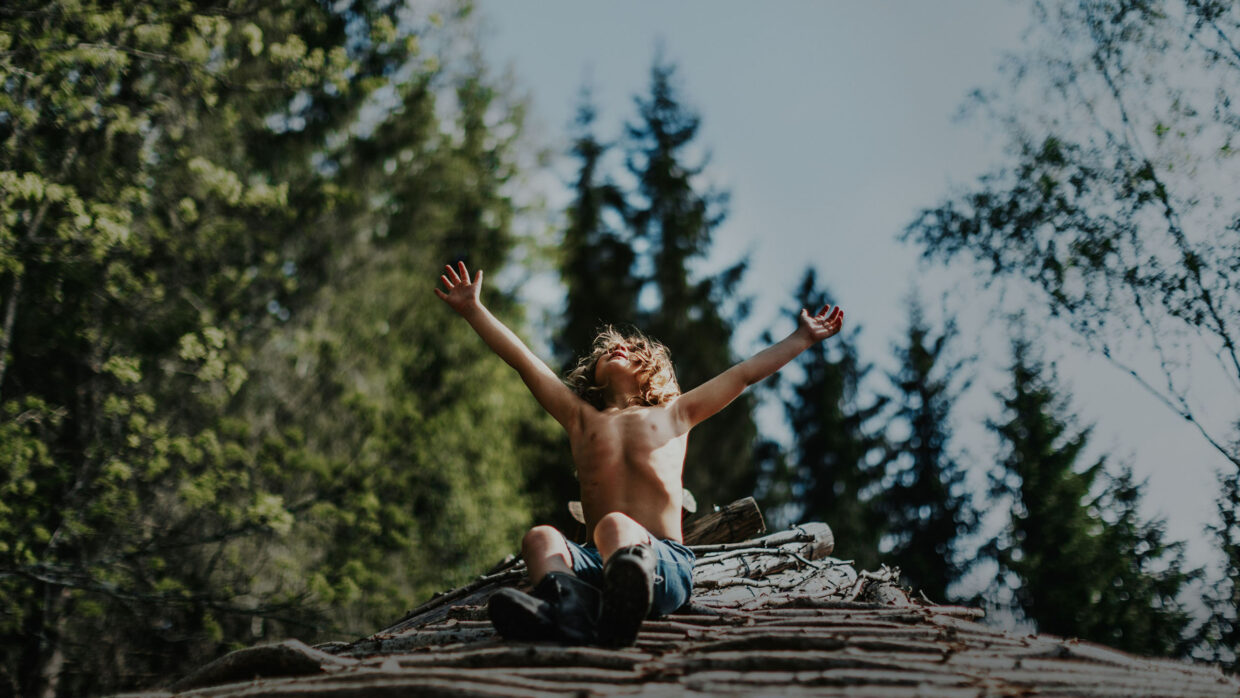 Back to selection
Back to selection
“Stay True to Your Gut”: Producer Mari Bakke Riise on A New Kind of Wilderness
 A New Kind of Wilderness Photo by Maria Gros Vatne.
A New Kind of Wilderness Photo by Maria Gros Vatne. When the Payne family experiences a personal tragedy, they must leave the home they love in the remote Norwegian wilderness and enmesh themselves in the society they once felt so strongly opposed to in A New Kind of Wilderness, the latest documentary from filmmaker Silje Evensmo Jacobsen.
First-time producer Mari Bakke Riise, who also served as the film’s editor, discusses how her long-time collaboration with Evensmo Jacobsen led to her multi-pronged involvement on this project.
See all responses to our questionnaire for first-time Sundance producers here.
Filmmaker: Tell us about the professional path that led you to produce this film, your first? What jobs within and outside of the film industry did you do, and what professional experience best prepared you to be a producer?
Bakke Riise: I have worked over a decade as a documentary director, where I also did more and more the work of a producer on my films, too. Me and Silje know each other from way back in the business. We decided to start our own company, producing and directing films we were passionate about.
Filmmaker: How did you connect with this filmmaker and wind up producing the film?
Bakke Riise: When Silje presented the idea to me of making this film, I instantaneously knew that we should do this film and that I would love to be the producer.
Filmmaker: How long a process was it to produce the film, and if you could break it into stages, periods of time, what were they?
Bakke Riise: We started filming without any support, because we couldn’t wait until we had the support before we started shooting it as it happened right there and then. Parallel to the filming and pitching the film to broadcasters and film forums internationally, I worked on getting the funding for the film.
Filmmaker: Did you have important or impactful mentors, or support from organizations, that were instrumental in your development as a producer?
Bakke Riise: Yes, we had help from a couple of experienced producers who taught me things along the way, Stine Ann Skaret in particular. She is wonderful and I am grateful for all the help and knowledge she shared.
Filmmaker: What was the most difficult aspect of producing this film?
Bakke Riise: Getting support for the national marketing of the film.
Filmmaker: What single element of the film do you have take the greatest amount of pride in, or maybe were just most excited by, as a producer?
Bakke Riise: As I am also a director, I love to be a creative producer and to contribute to the content and in the editing process. I think that is a strength in our company, that we are two directors from the start who can spar with each other on each other’s films and contribute.
Filmmaker: What surprised you or was unexpected when it comes to the producing of the film?
Bakke Riise: I am really grateful that Sundance selected this film to their festival. That is the best help this film can get to reach out to its audience both nationally and internationally.
Filmmaker: What are the challenges facing young producers entering the business right now at this unique historical moment? And what could or should change about the film business to make producing a more sustainable practice?
Bakke Riise: I find the broadcasters not prioritizing documentaries and especially not working enough to get the content out, making people find the films and create interest and a bigger audience.
Filmmaker: Finally, what advice would you pass on to a future young producer preparing to embark on their first production?
Bakke Riise: Stay true to your gut. Know if you truly like this film and want to produce it before you go into it.
